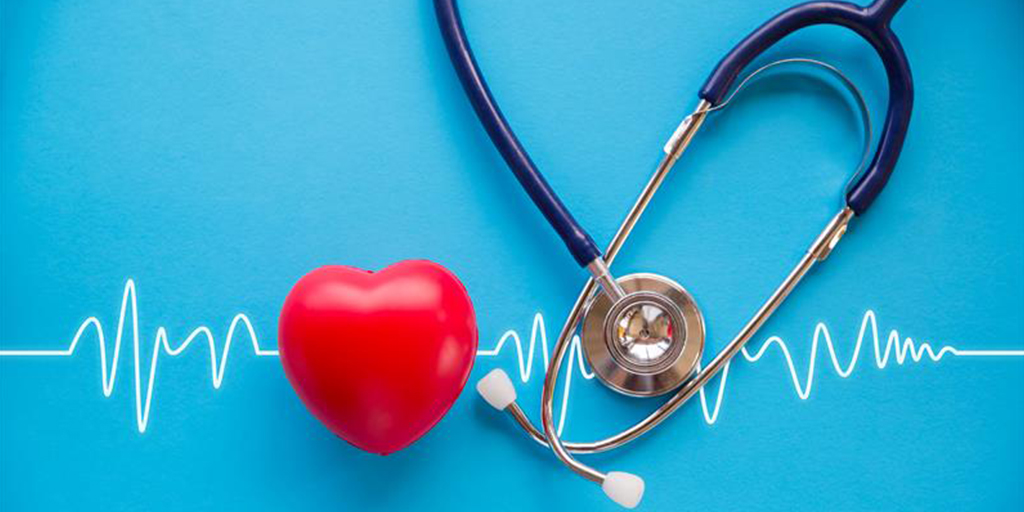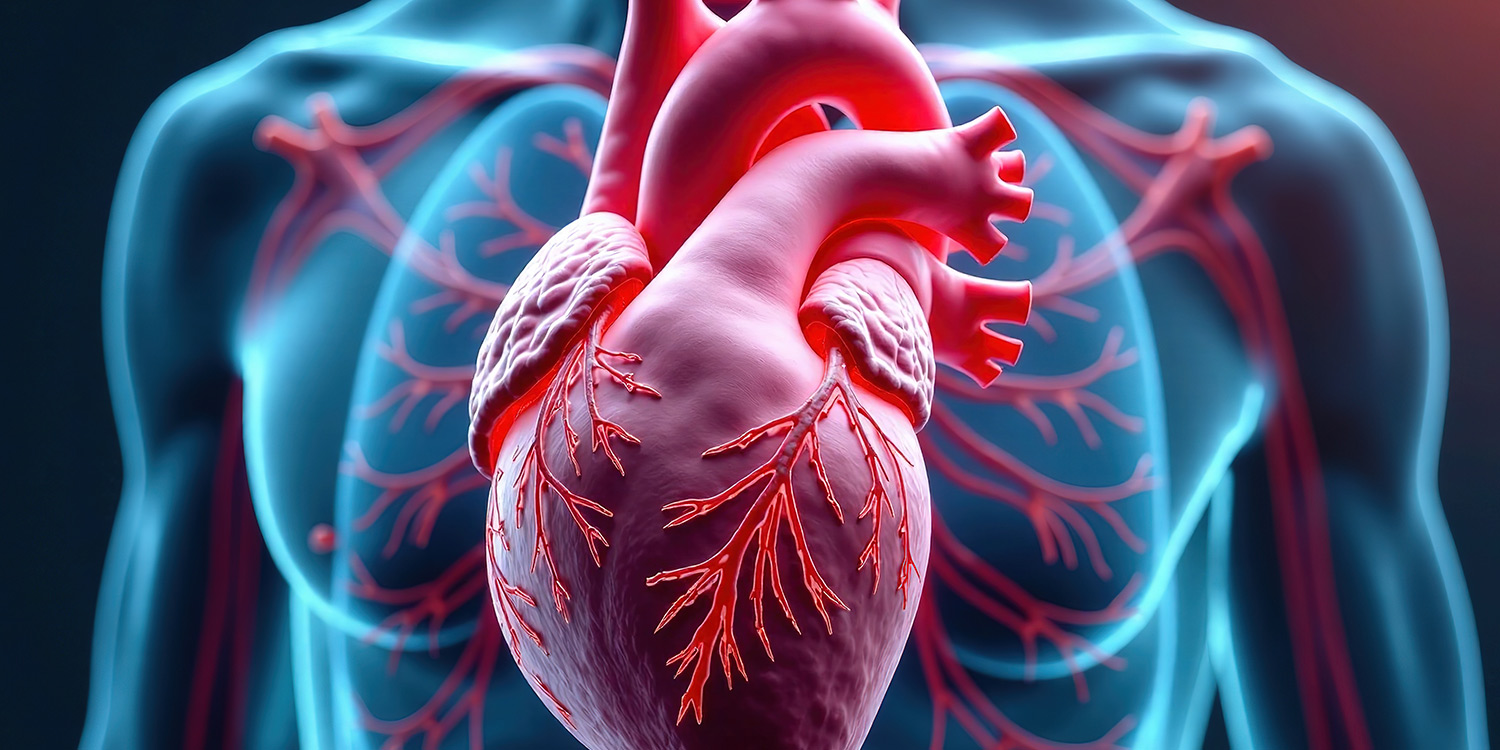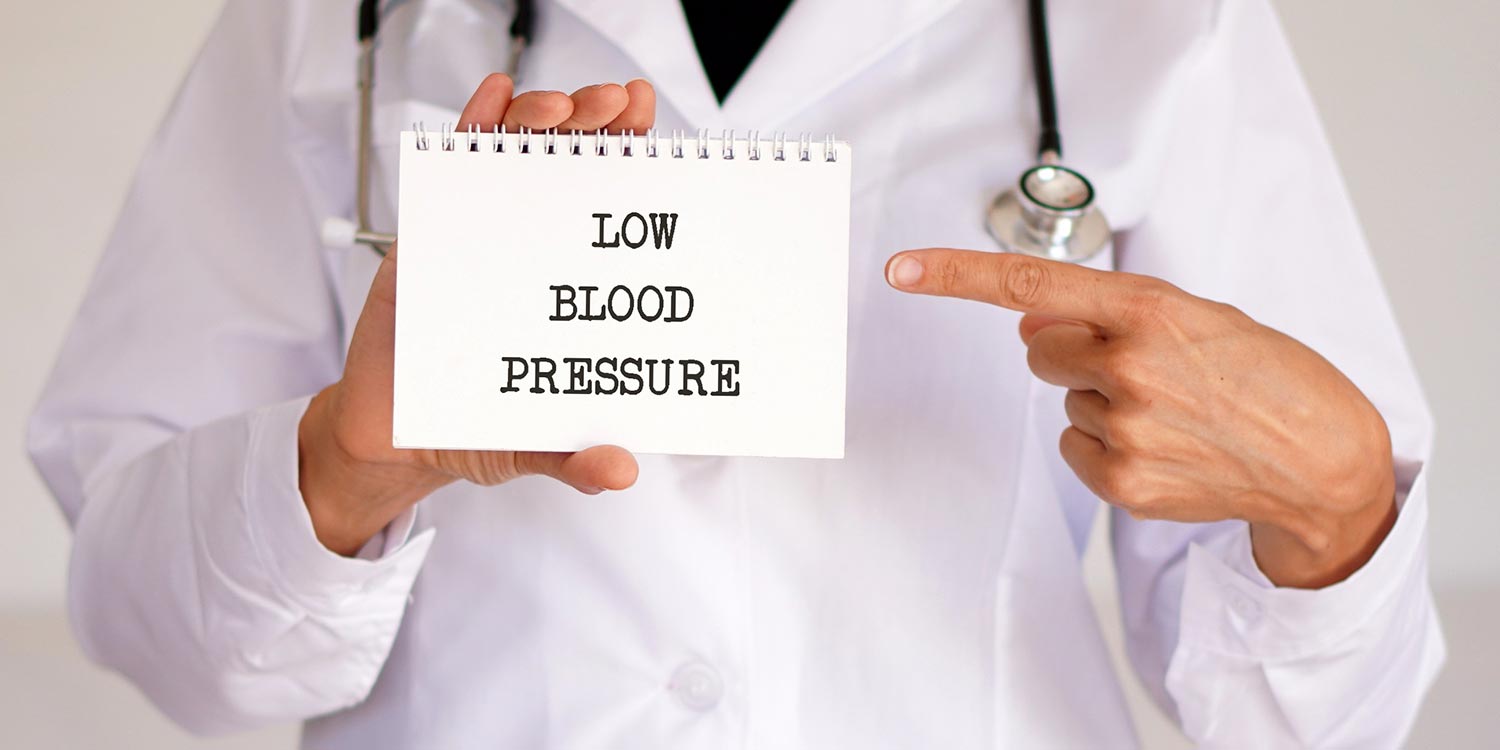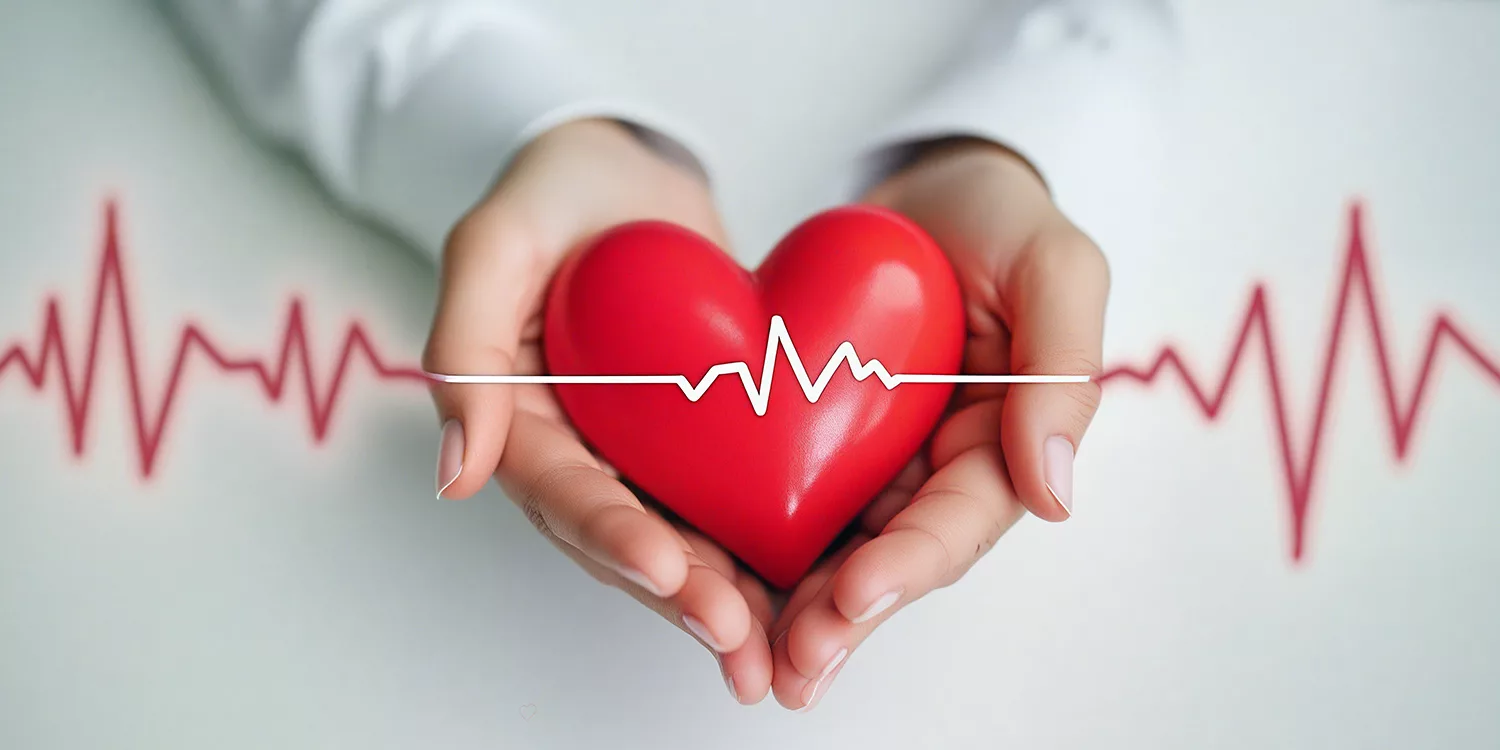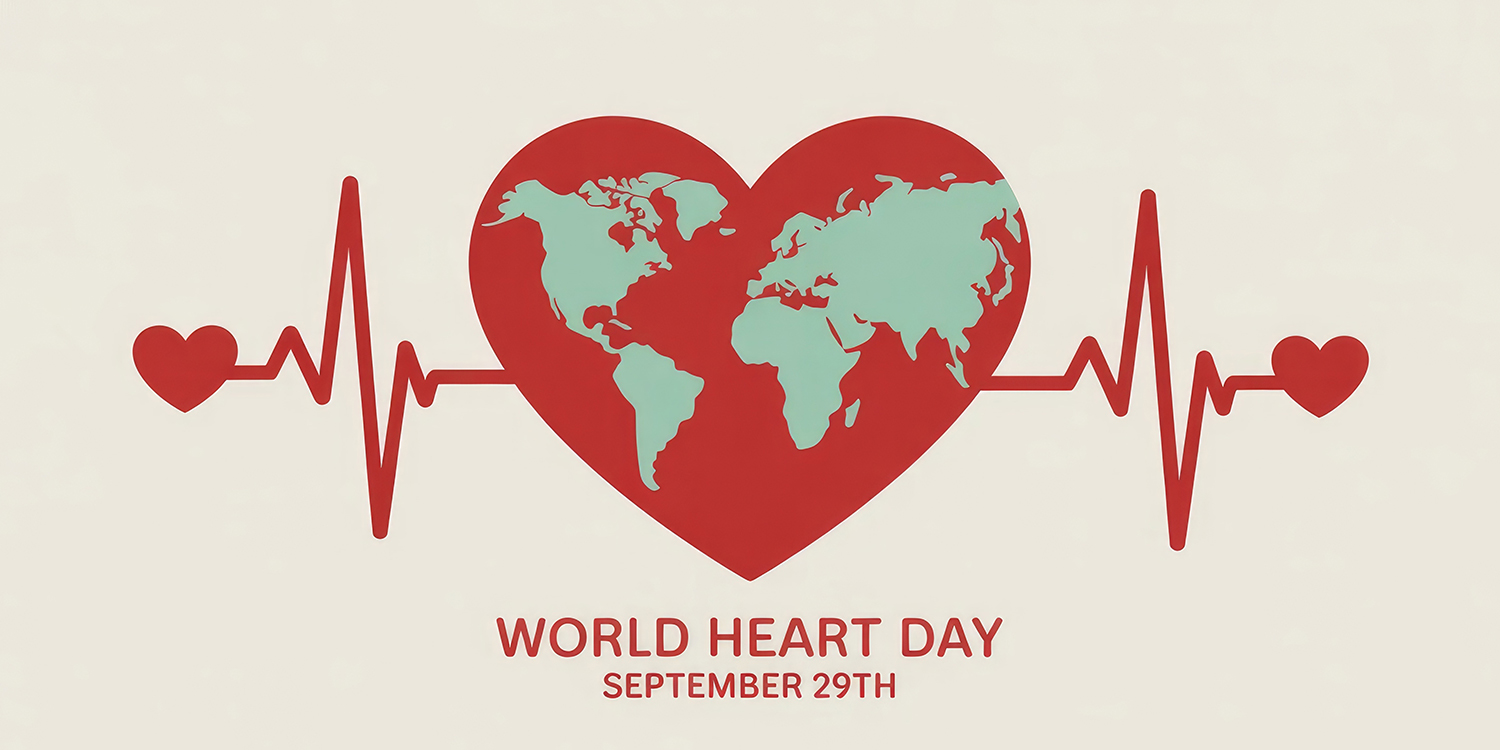Arrhythmia refers to irregularities in the heart’s rhythm, which can be too fast (tachycardia), too slow (bradycardia), or erratic. At Graphic Era Hospital, our Department of Cardiology offers specialised arrhythmia treatment through advanced cardiac electrophysiology services. From non-invasive diagnostics to device-based therapies such as pacemakers and defibrillators, our expert cardiologists manage a wide range of rhythm disorders, including atrial fibrillation and ventricular arrhythmias. With personalised care, cutting-edge technology, and proven protocols, we ensure accurate diagnosis, safe treatment, and long-term cardiac stability for every patient.
When to Seek Arrhythmia Screening and Consultation
Arrhythmias can range from harmless to life-threatening. Identifying early signs is key to preventing complications such as stroke or cardiac arrest. Seek medical attention if you notice any of the following warning signs, especially if they occur frequently or suddenly:
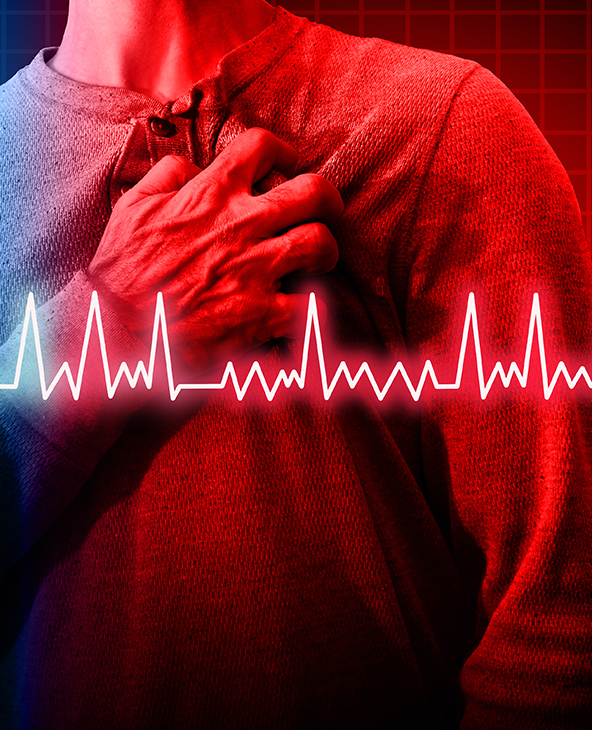
- Irregular, fast, or slow heartbeat
- A fluttering sensation in the chest (palpitations)
- Dizziness or light-headedness
- Sudden fatigue or weakness during normal activities
- Fainting or near-fainting episodes (syncope)
- Shortness of breath without exertion
- Chest discomfort or tightness
- Anxiety or a feeling of skipped heartbeats
- Episodes of confusion or memory lapses
- Worsening symptoms in individuals with existing heart disease
Things to Know Before Starting Arrhythmia Treatment
Before initiating treatment for arrhythmia, several clinical and lifestyle factors must be considered to ensure the most effective care. These include:
- Underlying heart conditions or structural abnormalities
- Risk of stroke or sudden cardiac arrest
- Current medications that may affect heart rhythm
- Frequency and severity of symptoms
- Impact on daily activities or quality of life
- History of fainting, palpitations, or hospitalisation
- Presence of implanted devices such as pacemakers or AICDs
- Potential need for long-term monitoring or repeat interventions
- Lifestyle adjustments required to support treatment efficacy
- The type of arrhythmia (e.g. atrial fibrillation, ventricular arrhythmia, bradycardia, tachycardia)
Arrhythmia Treatments Available at Graphic Era Hospital
At Graphic Era Hospital, we offer a comprehensive range of arrhythmia treatments tailored to the specific type and severity of the rhythm disorder.
- Pacemaker Implantation: For patients with bradycardia or heart block, pacemakers regulate the heart rate and prevent dangerous slow rhythms. Options include conventional, leadless, and physiological pacing (e.g., left bundle pacing).
- AICD (Automatic Implantable Cardioverter Defibrillator) Implantation: Used in patients at risk of sudden cardiac death due to life-threatening arrhythmias. The device detects and corrects dangerously fast heart rhythms.
- CRT (Cardiac Resynchronisation Therapy): An advanced pacemaker for patients with heart failure and arrhythmia. It helps synchronise heart contractions to improve cardiac function.
- Medical Management: Antiarrhythmic medications and rate-control drugs are prescribed to manage rhythm abnormalities and prevent complications such as stroke or heart failure.
- Electrophysiological Studies and Mapping: Invasive diagnostic procedures used to locate abnormal electrical pathways in the heart and guide treatment decisions.
- Catheter Ablation: A minimally invasive procedure where targeted energy is used to eliminate the faulty electrical signals causing arrhythmia.
- 24-hour Holter Monitoring: Continuous ECG monitoring to detect intermittent arrhythmias and guide therapy.
Why Choose Graphic Era Hospital for Arrhythmia Treatment?
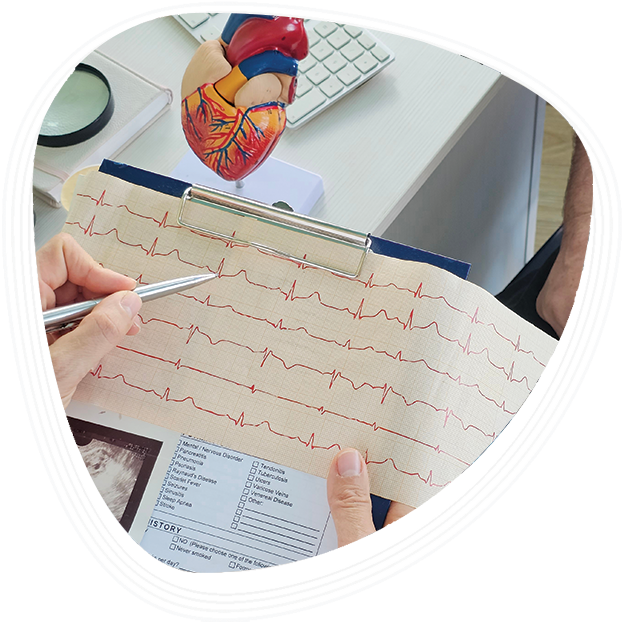
Specialised Arrhythmia Services Available at Graphic Era Hospital
We provide complete care for arrhythmia through a combination of diagnostic, therapeutic, and follow-up services.
Diagnostic and Evaluation Services
- 24-hour Holter Monitoring for continuous rhythm analysis
- Head-Up Tilt Test (HUTT) for unexplained fainting episodes
- Echocardiography and TMT for structural and functional heart evaluation
- Electrophysiological Studies (EPS) for detailed rhythm mapping
Medical Treatments and Interventional Therapies
- Antiarrhythmic and rate-control medications
- Pacemaker implantation for bradycardia and syncope
- AICD placement to prevent sudden cardiac death
- CRT devices for patients with heart failure and rhythm abnormalities
- Catheter ablation for curative treatment of arrhythmia sources
- Minimally invasive implantation of leadless pacemakers
- Comprehensive care for atrial fibrillation and ventricular arrhythmias
Rehabilitation and Preventive Cardiology
- Cardiac rehabilitation programmes to aid recovery
- Lifestyle counselling and risk factor management
- Long-term follow-up for arrhythmia control and prevention
Top Arrhythmia Treatments Available at Graphic Era Hospital
- Pacemaker Implantation (Conventional, Leadless, and Left Bundle Pacing)
- AICD (Automatic Implantable Cardioverter Defibrillator) Implantation
- CRT (Cardiac Resynchronisation Therapy)
- Catheter Ablation
- Electrophysiological Study (EPS)
- Holter Monitoring
- Antiarrhythmic Medication Management
Top Procedures
- Device Closure for Heart Defect
- Transcatheter Aortic Valve Replacement (TAVR)
- Pacemaker Implantation
- Primary Angioplasty
- Complex Angioplasty
- CRTD Implantation
- Intracoronary Imaging (IVUS/OCT)
- Cardiac MRI
- CT Coronary Angiography
- 4D Echocardiography (4D Echo)
- Stress Echocardiography (Stress Echo)
- Electrophysiology Study and Radiofrequency Ablation
- Endovascular Aortic Repair (EVAR)
Blog
Frequently Asked Questions (FAQs)
What is the most common type of arrhythmia?
Atrial fibrillation is the most common type of arrhythmia. It causes an irregular and often rapid heartbeat, increasing the risk of stroke and other heart-related complications.
Can arrhythmia be cured permanently?
Some arrhythmias can be permanently treated with procedures like catheter ablation or device implantation. However, others may require long-term management with medications and monitoring.
When should I worry about arrhythmia?
Seek medical attention if you experience frequent palpitations, dizziness, fainting, chest discomfort, or shortness of breath. These may indicate a serious arrhythmia needing prompt care.
How is arrhythmia diagnosed?
Diagnosis may include ECG, Holter monitoring, echocardiography, tilt-table testing, or electrophysiological studies to identify the type and source of the abnormal rhythm.
What are the treatment options for heart arrhythmia at Graphic Era Hospital?
We offer medication, pacemaker and AICD implantation, CRT therapy, catheter ablation, and continuous monitoring through Holter and EPS testing.
Can lifestyle changes help manage arrhythmia?
Yes. Reducing stress, limiting caffeine and alcohol, avoiding smoking, managing sleep and maintaining a heart-healthy diet can help stabilise the heart rhythm.
What are the symptoms of a serious arrhythmia?
Serious arrhythmias may cause fainting, sudden weakness, chest pain, confusion, or even cardiac arrest. These symptoms require urgent medical evaluation.
Is arrhythmia life-threatening?
Some arrhythmias are harmless, but others—especially ventricular arrhythmias—can be life-threatening if left untreated. Proper diagnosis is essential to determine the risk.
What is the success rate of catheter ablation?
Success rates vary by arrhythmia type, but for conditions like supraventricular tachycardia or atrial flutter, catheter ablation can have success rates of over 90%.
Who is the best doctor for arrhythmia in Graphic Era Hospital?
Arrhythmia cases are handled by our experienced electrophysiologists and interventional cardiologists, who work together to provide expert, individualised care.
How long does it take to recover from arrhythmia treatment?
Recovery depends on the treatment type. Most patients return to normal activities within a few days to weeks after device implantation or catheter ablation.

